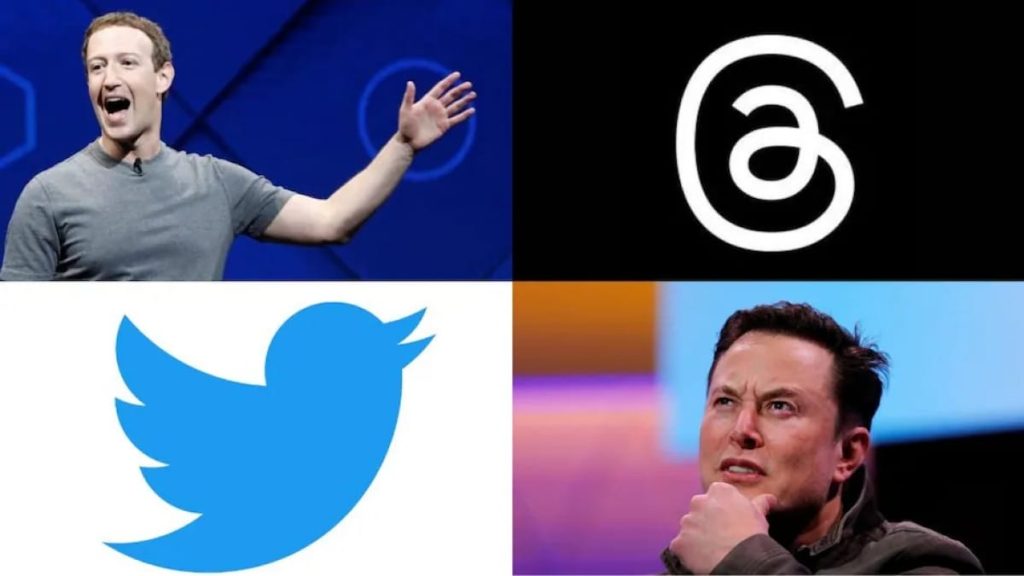Table of Contents
Threads App Controversy: Meta, the parent company of Facebook, Instagram and WhatsApp, has recently launched a new app called Threads, which is intended to rival Twitter as a platform for text-based conversations. However, the app has also sparked controversy and criticism from various quarters. Here are some of the main issues surrounding Threads and how they affect users and the social media landscape.
What is Threads?
Threads is a standalone app that allows users to post messages of up to 500 characters, along with photos and videos, and join public discussions on various topics. Users can sign up with their Instagram accounts and keep the same username, password and verification status. They can also share their Threads posts to their Instagram stories or other platforms.
Threads is designed to be an open and friendly space for expressing ideas and opinions, according to Meta CEO Mark Zuckerberg. He said that Threads aims to take what Instagram does best and create a new experience around text, ideas and discussing what’s on your mind.
In a recent post on Threads, Zuckerberg said: “The vision for Threads is to create an option and friendly public space for conversation. We hope to take what Instagram does best and create a new experience around text, ideas, and discussing what’s on your mind.”
Why is Threads controversial?
Threads has faced several challenges and criticisms since its launch in July 2023. Some of the main controversies are:
- Twitter’s lawsuit threat: Twitter, which is owned by Elon Musk, has threatened to sue Meta over Threads, claiming that Meta has unlawfully misappropriated Twitter’s trade secrets and intellectual property. Twitter also accused Meta of poaching dozens of former Twitter employees who had access to confidential information and assigning them to develop Threads. Meta has denied these allegations and said that there are no engineers on the Threads team who used to work at Twitter. This is one of the major sources of the Threads App Controversy.
- User backlash: Some users have expressed dissatisfaction with Threads, citing glitches, loading issues, spam, harassment and lack of originality. Some have also questioned the need for another text-based app when Twitter already exists. Others have expressed concerns about privacy, data collection and censorship on Threads, especially given Meta’s history of scandals and controversies. These are some of the reasons why users are unhappy with the Threads App Controversy.
- Competition from other apps: Threads is not the only app that is trying to challenge Twitter’s dominance in the text-based social media space. There are also other apps such as BlueSky Social, which was launched by Twitter’s inventor and former CEO Jack Dorsey, and Semafor, which is a news outlet that allows users to post short articles and comment on them. These apps offer different features and approaches that may appeal to different audiences and preferences. These are some of the competitors that could affect the outcome of the Threads App Controversy.
- Instagram CEO’s statement: Instagram CEO Adam Mosseri has stated that the Threads app is intentionally designed to avoid news and politics. Mosseri wants to preserve a positive user experience and focus on other interests. Meta, the parent company of Instagram, has also taken steps to distance itself from news and politics. Mosseri said that news and politics are not worth the “incremental engagement or revenue” that come with the “scrutiny, negativity (let’s be honest), or integrity risks”. He said that there are more than enough amazing communities – sports, music, fashion, beauty, entertainment, etc. – to make a vibrant platform without needing to get into politics or hard news. This is one of the statements that has sparked debate among users about the purpose and direction of the Threads App Controversy.
What are the implications of Threads?
Threads is a significant move by Meta to expand its portfolio of popular apps and tap into the growing demand for text-based conversations online. Threads could potentially attract millions of users who are looking for a new way to communicate and share their thoughts on various topics. Threads could also provide a new platform for Meta to sell ads and generate revenue.
However, Threads also faces many challenges and risks that could limit its success and impact. Threads has to compete with not only Twitter, but also other apps that offer similar or better services. Threads also has to deal with legal disputes, user complaints, technical issues and ethical dilemmas that could tarnish its reputation and trustworthiness. Threads also has to navigate the complex and dynamic social media landscape that is constantly evolving and changing. These are some of the factors that could influence the future of the Threads App Controversy.
Summary
- Threads is a new app by Meta that allows users to post text-based messages and join public conversations.
- Twitter’s lawsuit threat: Twitter claims that Meta has unlawfully misappropriated Twitter’s trade secrets and intellectual property. This is one of the major sources of the Threads App Controversy.
- User backlash: Some users have expressed dissatisfaction with Threads, citing glitches, loading issues, spam, harassment and lack of originality. These are some of the reasons why users are unhappy with the Threads App Controversy.
- Competition from other apps: Threads faces competition from other apps such as BlueSky Social, Semafor and others that offer different features and approaches. These are some of the competitors that could affect the outcome of the Threads App Controversy.
- Instagram CEO’s statement: Instagram CEO Adam Mosseri has stated that the Threads app is intentionally designed to avoid news and politics. This is one of the statements that has sparked debate among users about the purpose and direction of the Threads App Controversy.
- Implications for privacy, data collection and censorship: Some users have expressed concerns about how Threads handles their personal data, protects their privacy and respects their freedom of expression. These are some of the factors that could influence the future of the Threads App Controversy.

